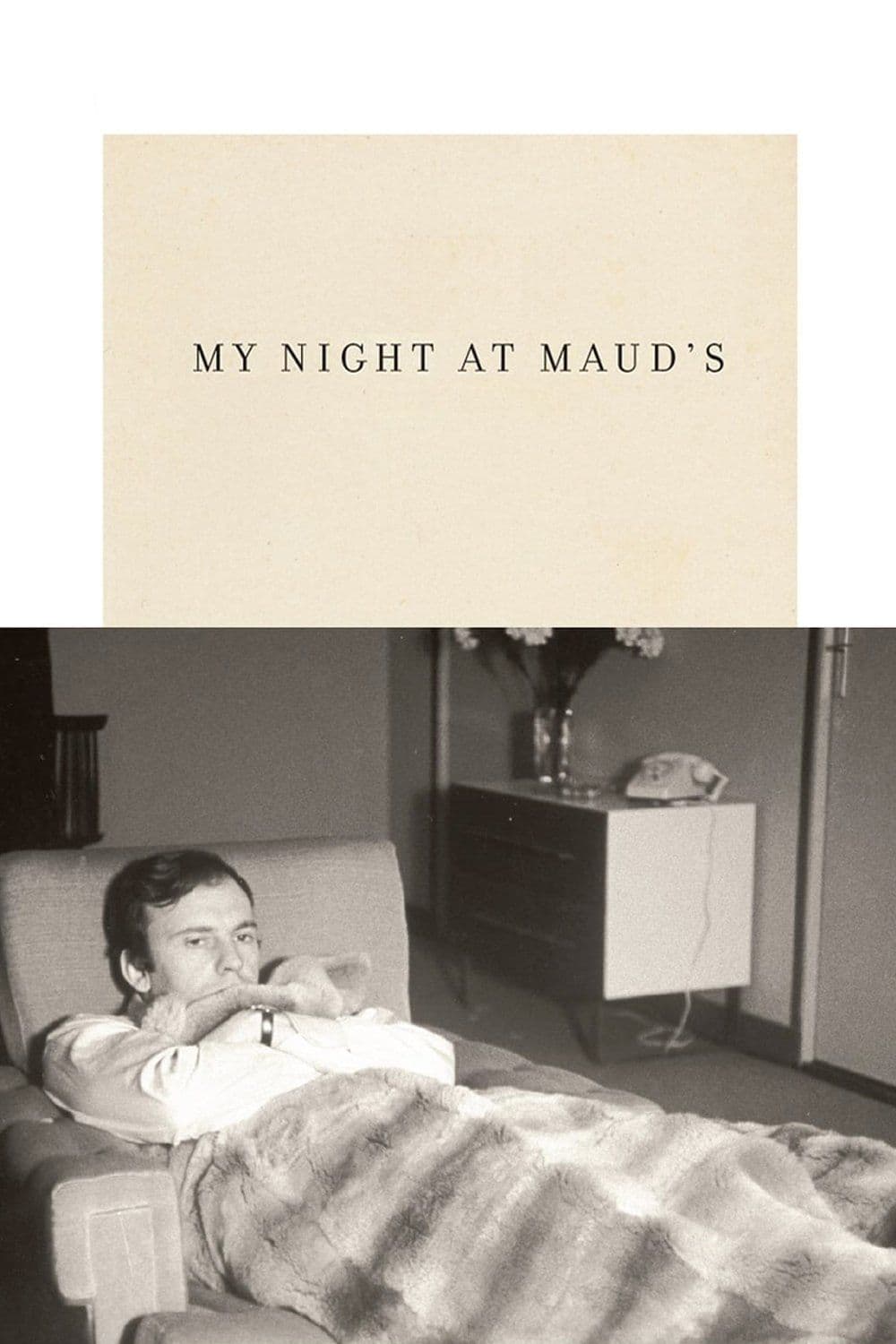
My Night at Maud's
1969
Rate this movie
Average: 3.00 / 5
(1 votes)
Director
Precariously balanced on the edge of emotions, Eric Rohmer explores the nature of love, not as an irrational impulse, but as a dialectical battlefield, a philosophical experiment where reason and chance relentlessly confront each other. My Night at Maud's, a luminous jewel in his celebrated series of Moral Tales, stands as the pinnacle of this exploration, unveiling the most subtle nuances of human decisions and their irrevocable consequences.
The result is an intriguing work: both for its emotional perspective and its psychological inquiry. Rohmer, an authentic entomologist of the bourgeois soul, observes his characters with an almost scientific distance, yet imbued with deep empathy, allowing their intimate debates to resonate far beyond the screen. This is not a conventional drama, but rather a score of conversations, of pregnant pauses, of stolen glances and eloquent silences, where the true action unfolds in the inner turmoil of the protagonists, an echo of Marivaux's plays filtered through the lens of modern cinema.
A Michelin engineer, Jean-Louis (portrayed with calibrated melancholy by Jean-Louis Trintignant), moves for work to a small village in Clermont-Ferrand, a provincial and wintery setting that amplifies a sense of contemplative isolation. It is here that, during a mass, he notices an attractive young woman, Françoise, whom he resolves to meet and, within his rigid existential framework, to marry. This desire, almost a dogma, is rooted in his worldview dictated by an almost Jansenist Catholicism, deeply influenced by the "moral eighteenth century" and, in particular, by Blaise Pascal. His intention for a righteous and preordained life, an almost literal application of "Pascal's Wager" to love and destiny, is the cornerstone against which all his subsequent choices will be measured. Grace, Providence, human will: these are the concepts that silently stir beneath the surface of his seemingly trivial actions.
That same evening, in a sublime interplay of chance or destiny – one of Rohmer's favorite themes – he is invited by a friend, Vidal (Antoine Vitez), to the home of Maud (Françoise Fabian), an intelligent, uninhibited, divorced woman, whose existence seems the exact opposite of Jean-Louis's moral rigidity. With her, he spends a night of words and a single fleeting kiss. But what could be described as a "white night" is, in reality, a whirlwind of ideas, a verbal duel that unfolds between Pascalian quotes and discussions on love, freedom, betrayal, sincerity. Rohmer's magic lies in making this intellectual confrontation infinitely more seductive and suspenseful than any physical effusion. It is through the power of words that souls are revealed, fragilities unveiled, attractions and repulsions manifested. Rohmer's direction, aided by Néstor Almendros' masterful black and white cinematography, which exquisitely captures the cold, penetrating light of the French winter, transforms bourgeois interiors into theaters of conscience, where every shadow and every reflection contributes to defining the characters' inner landscape.
Years later, Jean-Louis's life seems to have conformed to his predetermined plan: he reappears at the woman's home after marrying the girl he met at Mass. But the past is never truly buried. The dialectic that had dominated the night with Maud will now give way to subterranean impulses that will erupt with disruptive force, not so much in an external drama, but in the progressive crumbling of Jean-Louis's inner certainties. Rohmer does not need grandiose plot twists; the revelation of a detail, the resonance of a memory, is enough for him to shake the edifice of his characters' personal coherence to its foundations. The bitter irony of the situation lies in the fact that Jean-Louis's "moral choice," the one that should have guaranteed him tranquility and virtue, instead leads him down a tortuous path of self-deception and regret.
One of the most melancholic scenes in the entire film is the final one: Jean-Louis meets Maud on the beach five years later, in an almost dreamlike setting that contrasts with everyday reality. He breaks away from his wife and son to greet her, a hushed dialogue among the sand dunes, where the wind seems to whisper secrets and unspoken words. And before them, beyond words, one can almost touch the memories, the crossroads of life, the regrets that have rolled through the years. The revelation that emerges at this juncture, regarding Françoise's past and the unexpected connection with Maud, is a punch to the gut of chilling irony, dismantling the idealized purity that Jean-Louis had projected onto his marital choice. This bitter truth makes his moral journey even more ambiguous and layered.
The film concludes with Jean-Louis returning to his wife and beginning to talk to her about Maud, boasting of a night of sex that never happened. A lie that is simultaneously a coded confession and a desperate attempt to reify a desire, to give substance to an alternative that never materialized, perhaps to justify to himself his "mistake" of not having yielded to Maud's allure. Then he stands up and, hand in hand, plunges into the waves with his son and wife. A scene that, while on the one hand might suggest a newfound harmony or an acceptance of one's destiny, on the other leaves an aftertaste of unease. Is it a catharsis or just another mask worn to keep floating in an existence of compromises and unstated truths?
Rohmer, a keen connoisseur of the human soul, shapes a story around the swirling of love in the making, of passion that could have been, of the path not taken. A film that offers no easy answers, but poses uncomfortable questions, inviting the viewer to reflect on their own choices, their regrets, on the "what ifs" that dot every life. It is a work that, with its almost ascetic elegance and its philosophical depth, will undoubtedly bring to mind a stolen kiss, a lost glance, a woman flown away on the wind of memory, persistent echoes of those parallel lives that, on another night, under other stars, could have been ours.
Country
Gallery
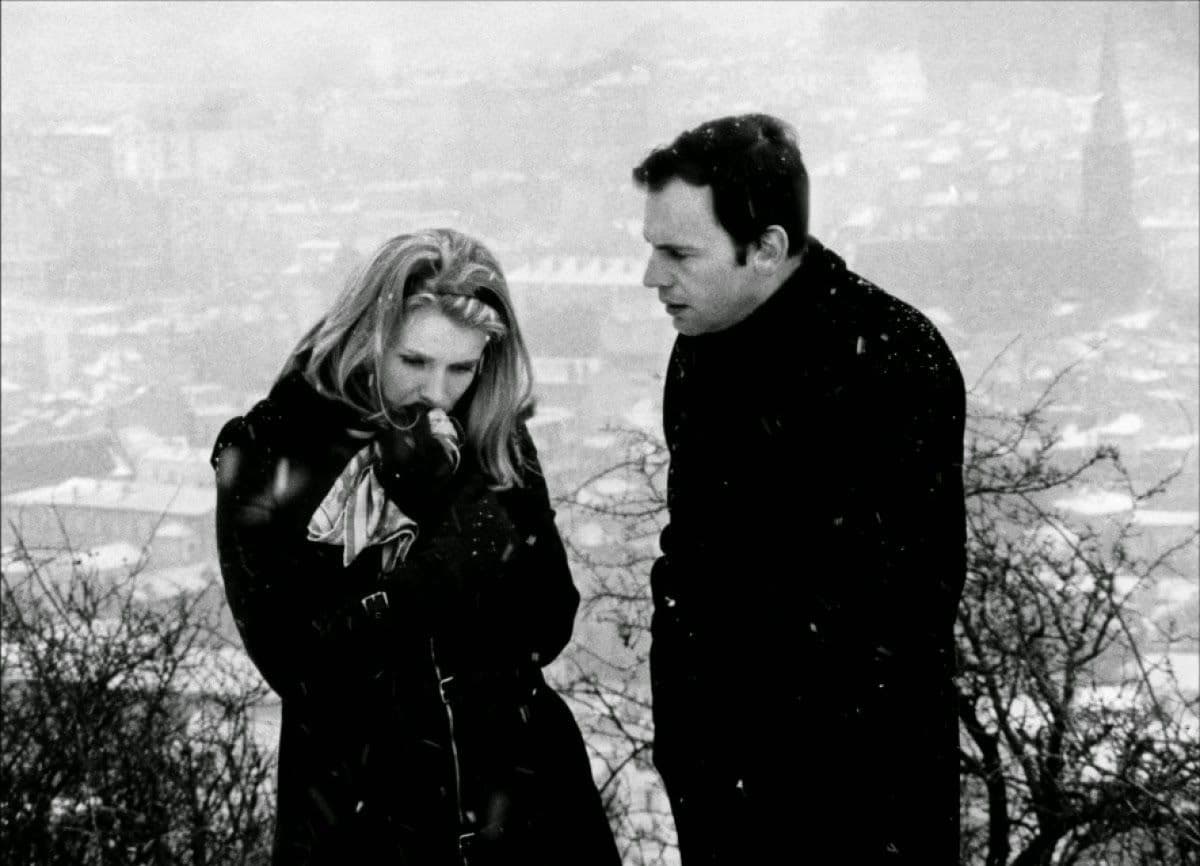

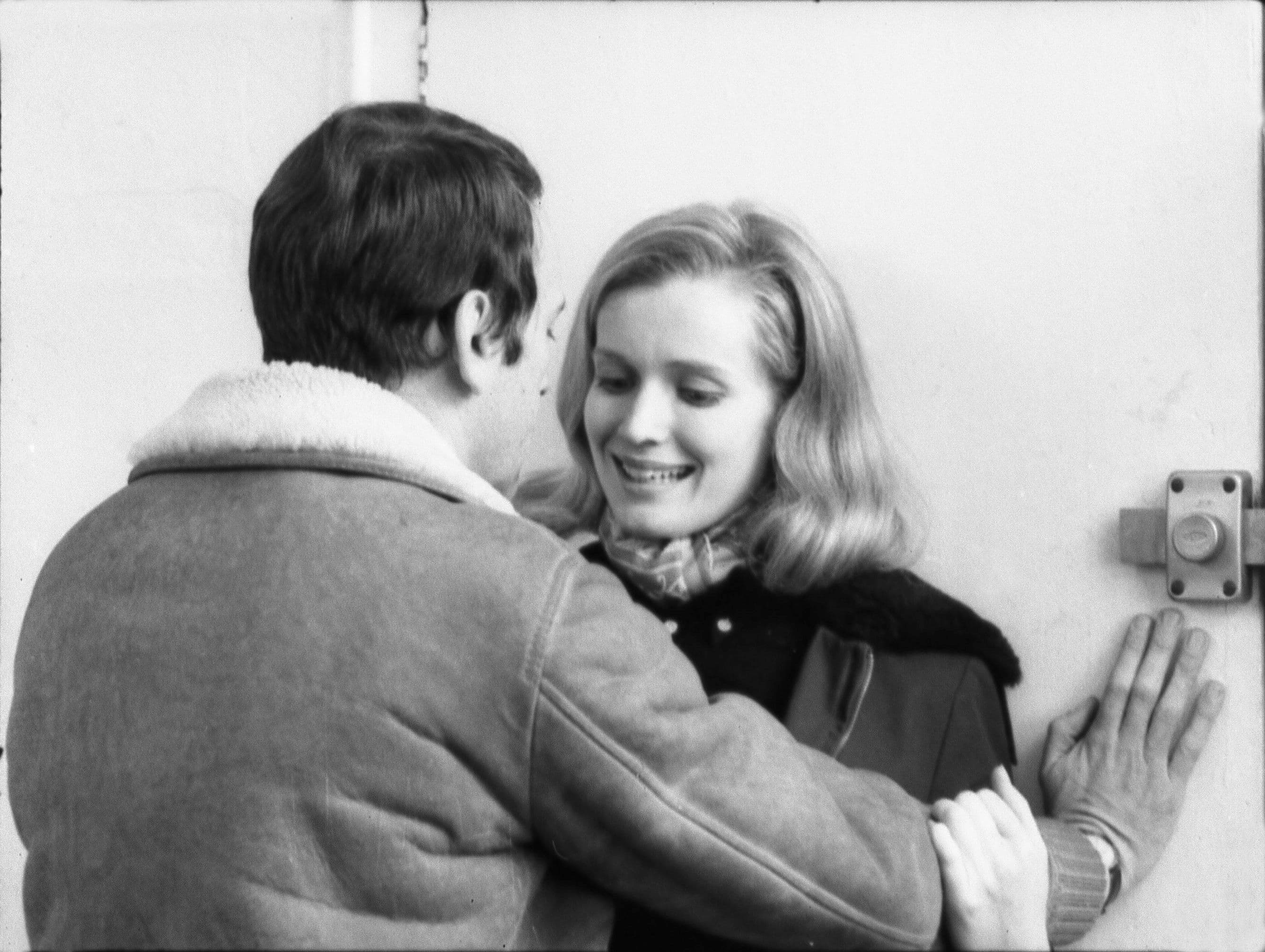


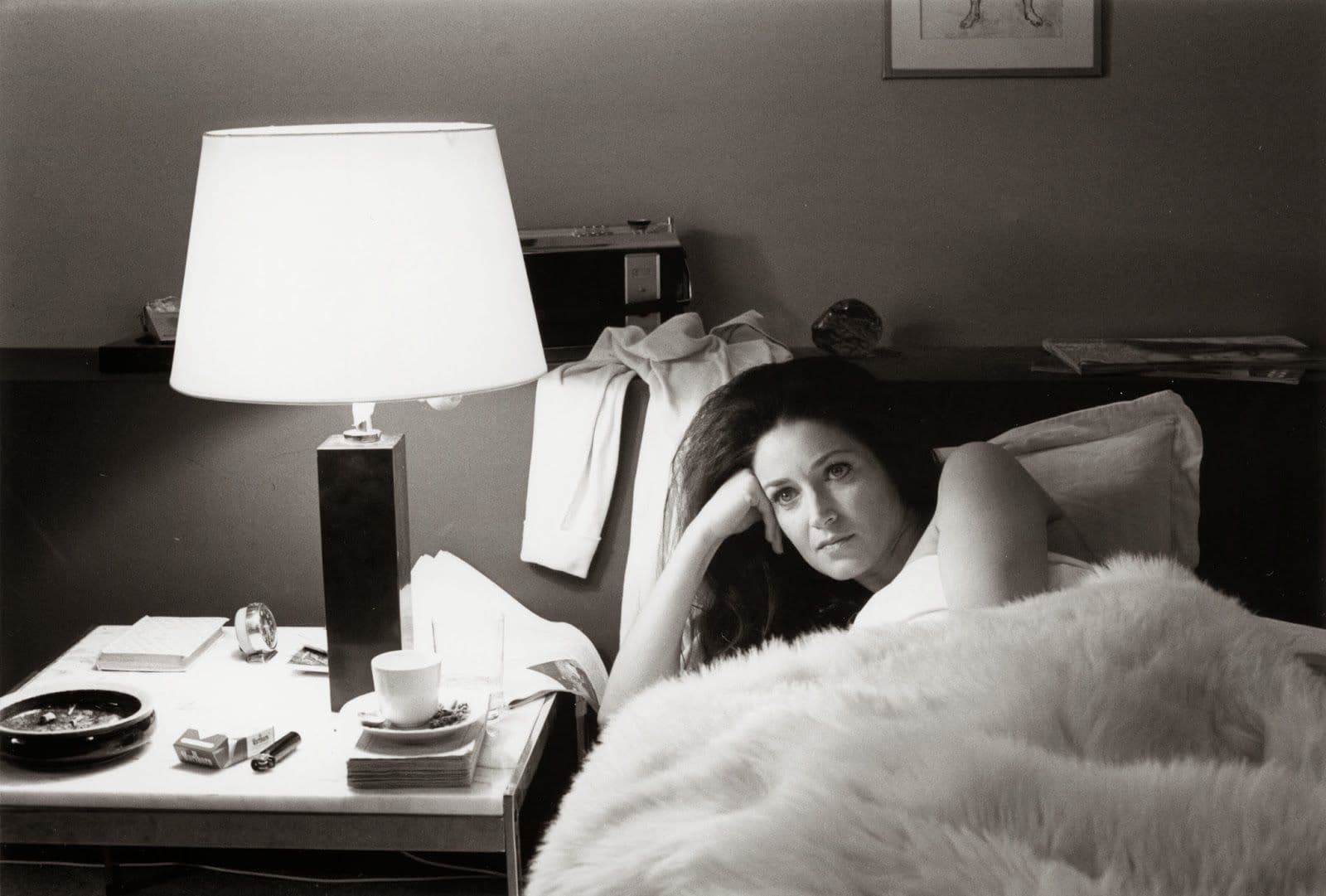

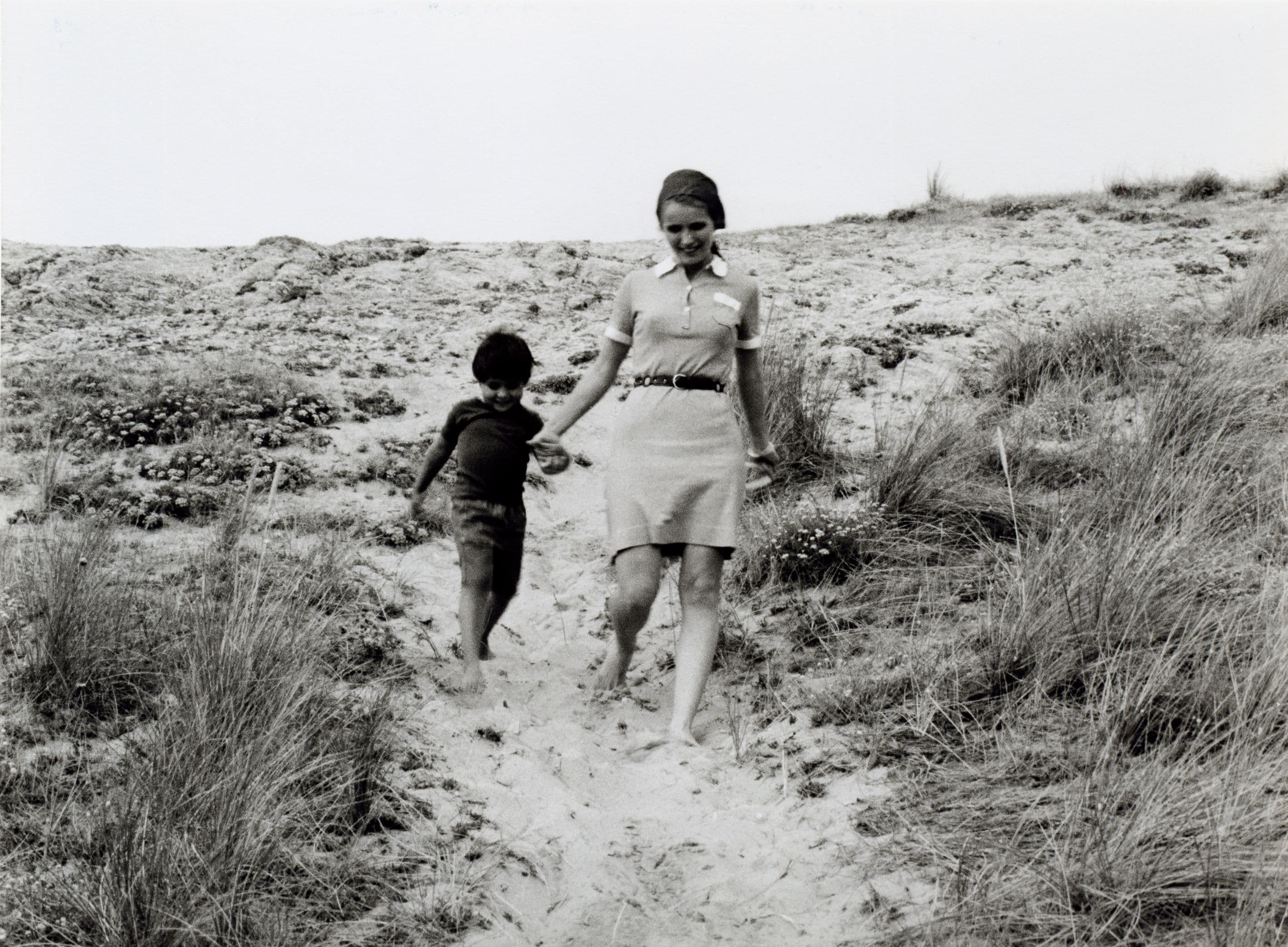
Featured Videos
Official Trailer
Comments
Loading comments...